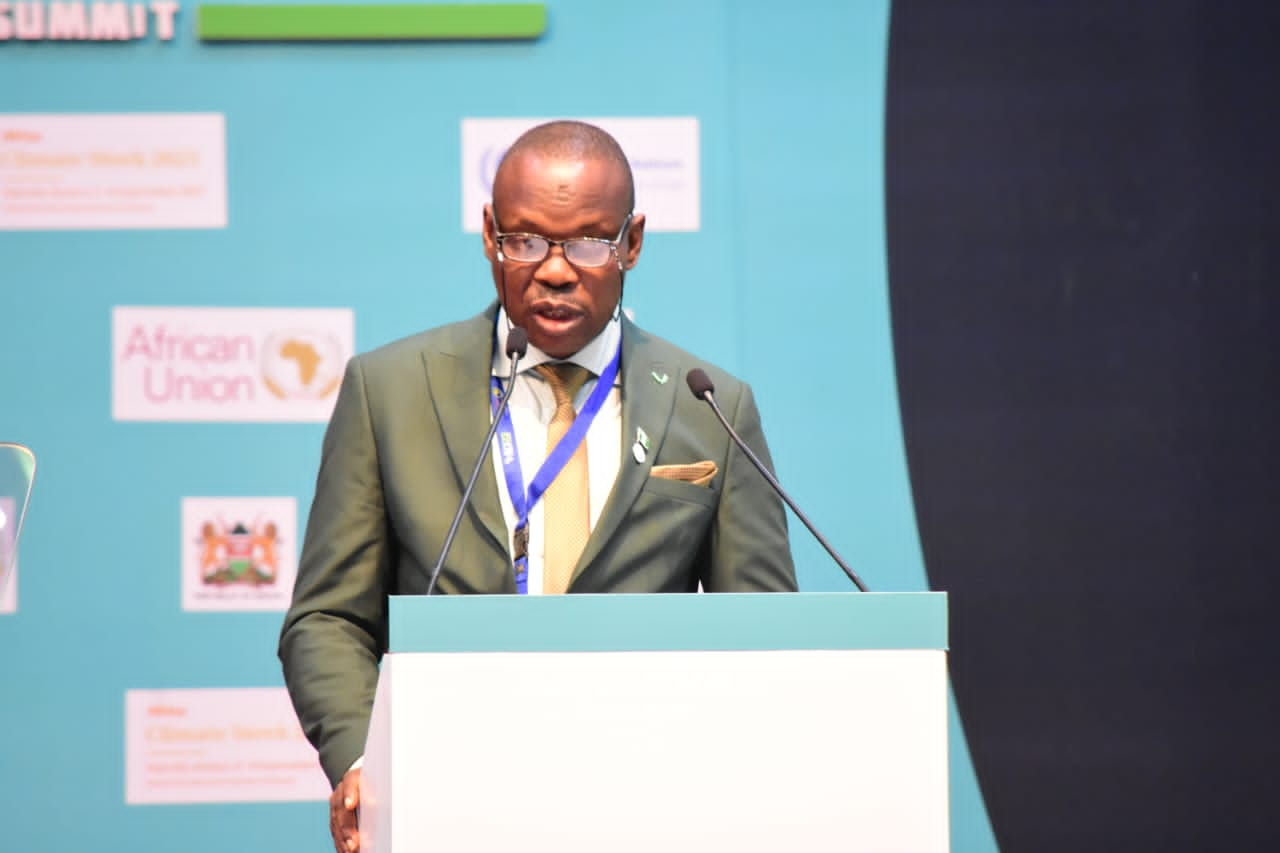
Energy Transition and Investment Plans reflect how countries show they would build energy systems to support economic and social development and achieve net-zero emissions. Nigeria released its Energy Transition Plan in August 2022.
Net-zero means cutting greenhouse gas emissions to as close to zero as possible, while the remaining emissions are re-absorbed from the atmosphere by oceans and forests, among others. Nigeria committed to achieving net zero emissions by 2060.
Speaking on behalf of the President at the Presidential Day Programme of the African Climate Summit held at the Kenyatta International Conference Centre, Nairobi, Kenya, the Minister of State for Environment, Dr Iziaq Salako, added that aside the annual sum was an additional $10bn, annually.
The Summit, hosted by the Government of Kenya and the African Union, was organised to create a climate goal for Africa, with a focus on green growth and climate finance.
He said, “In Nigeria, we have articulated our unchanging position to advance climate action without jeopardising economic development. We designed an ambitious Energy Transition Plan to achieve universal access to energy by 2030 and net-zero emissions by 2060 while prioritising industrialisation, job creation, and economic growth.
“Significantly, our plan helps to crystallise the scale of resources needed to deliver climate targets, and current financial flows will not suffice. Nigeria’s Energy Transition Plan requires $1.9 trillion spending up to 2060, including $410 billion above business-as-usual spending.”
Tinubu stated that the country only received about $655m in international financing flows for clean energy in the past decade.
He noted that more investment needed to come to the continent to ensure the Nationally Determined Contributions were achieved.
A nationally determined contribution is a non-binding plan of a nation to mitigate and adapt to the effects of climate change.
He added, “For us in Nigeria, we are presently establishing partnerships with both public and private sector players, driving innovative policy changes, advancing renewable energy projects including on-grid solar and electric vehicle deployment, and exploring innovative financing mechanisms like carbon trading to lay the foundation for an all-encompassing transition.
“I recently made public the key focus of my government captured as an eight-point agenda. Climate action and environmental sustainability is central to achieving four of those agenda which are food security, poverty eradication, job creation, and security.”
Tinubu stated that Nigeria wanted to be a part of the Just Energy Transition Partnerships due to its emergence as an important source of capital for climate-sensitive energy efforts in developing regions and Nigeria.
The President added, “My team is currently working on a proposal to the G7 for a JET-P for Nigeria. It is encouraging that South Africa and Senegal have secured JET-Ps, but they must be scaled up across Africa in addition to other strategic financing opportunities.
Also, during a panel session on Renewable Energy and Transitions, he stated that the country was aimed at taking 100m people out of poverty and stopping gas flaring.
“There is a plan to ensure that our households use more environmentally friendly sources of energy for cooking by transiting from the use of firewood and coal to the use of natural gas so that we can achieve zero emissions by 2030,” Tinubu stated.
He further assured African leaders of the country’s commitment “to communicate Africa’s position on climate action, and expedite an equitable, sustainable future for all of us” and to ensure no one was left behind in the energy transition.













